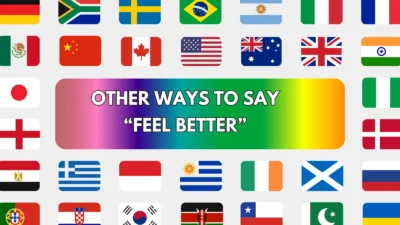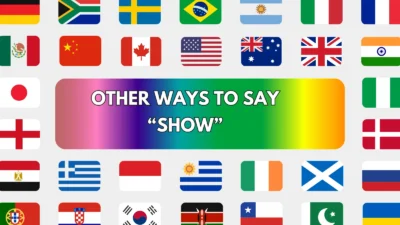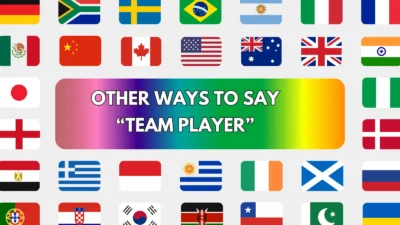“Sorry to hear that” is a common and compassionate phrase we use when someone shares bad news, disappointment, or hardship. It conveys sympathy, but repeating the same phrase can feel impersonal or routine over time. By using varied, thoughtful alternatives, you can express empathy more meaningfully and make the other person feel genuinely supported.
Here are 25 heartfelt and appropriate alternatives to “sorry to hear that”, complete with meanings, explanations, examples, ideal use cases, and tone.
1. I’m So Sorry
Meaning
An empathetic way to acknowledge someone’s pain or trouble.
Detailed Explanation
This direct and simple phrase offers sincere sympathy and is often used in both casual and formal settings.
Scenario Example
I’m so sorry you’re going through this right now.
Best Use
General sympathy in any emotional context.
Tone
Warm, caring.
2. That Must Be Really Hard
Meaning
Acknowledges the emotional difficulty someone is facing.
Detailed Explanation
Shows that you’re not just offering sympathy, but trying to understand the weight of the situation.
Scenario Example
Losing a pet is never easy—that must be really hard.
Best Use
One-on-one conversations, emotional support.
Tone
Compassionate, validating.
3. My Heart Goes Out to You
Meaning
An emotional way of expressing sorrow for someone’s hardship.
Detailed Explanation
Often used when someone has experienced a deep loss or suffering.
Scenario Example
My heart goes out to you and your family during this difficult time.
Best Use
Condolences, grief messages.
Tone
Deeply sympathetic, heartfelt.
4. That’s So Unfortunate
Meaning
Recognizes a bad situation with a tone of regret.
Detailed Explanation
More formal and neutral, suitable for professional settings.
Scenario Example
That’s so unfortunate—I hope things improve soon.
Best Use
Emails, work-related concerns.
Tone
Polite, considerate.
5. I Can’t Imagine How That Feels
Meaning
Acknowledges emotional pain while admitting you can’t fully understand it.
Detailed Explanation
This adds depth to your empathy and avoids making assumptions.
Scenario Example
I can’t imagine how that feels, but I’m here if you need to talk.
Best Use
Personal support, deeper emotional topics.
Tone
Supportive, reflective.
6. That Sounds Awful
Meaning
Strongly expresses sympathy for a troubling situation.
Detailed Explanation
This phrase is honest and expressive, showing that you genuinely care.
Scenario Example
That sounds awful—I’m really sorry you’re dealing with that.
Best Use
Personal conversations, emotional sharing.
Tone
Emphatic, concerned.
7. I’m Here for You
Meaning
A promise of emotional or practical support.
Detailed Explanation
Goes beyond sympathy and offers presence and availability.
Scenario Example
Whatever you need, I’m here for you.
Best Use
Close friends, emotional support moments.
Tone
Reassuring, kind.
8. That’s Tough News
Meaning
Acknowledges that the situation is hard or unpleasant.
Detailed Explanation
Casual yet considerate, it recognizes difficulty without sounding overly dramatic.
Scenario Example
That’s tough news—I’m hoping for the best for you.
Best Use
Everyday conversations, text responses.
Tone
Gentle, empathetic.
9. Oh No, I’m Sorry
Meaning
A spontaneous and sincere reaction to hearing bad news.
Detailed Explanation
Shows surprise and sympathy in an informal, warm way.
Scenario Example
Oh no, I’m sorry! That must have been so upsetting.
Best Use
In-the-moment responses, friends and family.
Tone
Natural, heartfelt.
10. I’m Thinking of You
Meaning
Tells someone they’re in your thoughts during a difficult time.
Detailed Explanation
It doesn’t directly mention the issue but offers comfort and presence.
Scenario Example
I’m thinking of you and hoping things get better soon.
Best Use
Condolence cards, quiet support.
Tone
Gentle, supportive.
11. I Wish I Could Do Something
Meaning
Expresses a desire to help even if you can’t.
Detailed Explanation
Conveys helplessness in a compassionate way while still showing care.
Scenario Example
I wish I could do something—please let me know if I can help.
Best Use
When you feel powerless but want to offer emotional support.
Tone
Caring, genuine.
12. That’s Really Disappointing
Meaning
Acknowledges someone’s frustration or letdown.
Detailed Explanation
Best when someone’s facing unfairness or missed opportunities.
Scenario Example
That’s really disappointing. You put in so much effort.
Best Use
Work or academic letdowns.
Tone
Supportive, understanding.
13. That’s Got to Be So Frustrating
Meaning
Shows empathy specifically for feelings of anger or irritation.
Detailed Explanation
Good for situations where the person may feel helpless or annoyed.
Scenario Example
That’s got to be so frustrating—how can I support you?
Best Use
Everyday challenges, setbacks.
Tone
Validating, friendly.
14. My Deepest Condolences
Meaning
A respectful and formal way to express sympathy after a loss.
Detailed Explanation
Often used in written messages or professional condolences.
Scenario Example
My deepest condolences to you and your family.
Best Use
Obituaries, funeral messages.
Tone
Formal, solemn.
15. Sending You Love
Meaning
Offers emotional support in a warm and affectionate way.
Detailed Explanation
Less formal and best used with someone you’re close to.
Scenario Example
Sending you love and hoping tomorrow feels a little lighter.
Best Use
Personal texts, cards, heartfelt moments.
Tone
Tender, caring.
16. I’m Here If You Want to Talk
Meaning
Lets the person know you’re open to listening.
Detailed Explanation
It’s a supportive invitation without being pushy.
Scenario Example
That’s really tough. I’m here if you want to talk.
Best Use
Friends, coworkers, anyone struggling.
Tone
Welcoming, gentle.
17. That Breaks My Heart
Meaning
Shows a deep emotional reaction to someone’s pain.
Detailed Explanation
Used when you’re especially moved by someone’s hardship.
Scenario Example
That breaks my heart—I’m so sorry.
Best Use
Emotional conversations with people you know well.
Tone
Emotional, sincere.
18. That’s Really Unfair
Meaning
Validates the injustice or hardship someone is experiencing.
Detailed Explanation
Helpful when someone is venting about mistreatment or setbacks.
Scenario Example
That’s really unfair. I can see why you’re so upset.
Best Use
Supportive conversations, venting.
Tone
Empathetic, validating.
19. I Hope Things Get Better Soon
Meaning
Offers well wishes for improvement.
Detailed Explanation
Encouraging and hopeful, while still recognizing pain.
Scenario Example
I’m really sorry to hear that. I hope things get better soon.
Best Use
Follow-ups, texts, verbal support.
Tone
Optimistic, kind.
20. That’s a Lot to Deal With
Meaning
Acknowledges that the situation is overwhelming.
Detailed Explanation
Helps validate someone’s stress without judgment.
Scenario Example
That’s a lot to deal with—I hope you’re taking care of yourself.
Best Use
Emotional support, burnout check-ins.
Tone
Concerned, understanding.
21. I’m Sending Strength Your Way
Meaning
Wishes someone emotional resilience.
Detailed Explanation
Less common but uplifting and supportive.
Scenario Example
I’m sending strength your way during this tough time.
Best Use
Encouraging notes, tough conversations.
Tone
Hopeful, encouraging.
22. That’s a Real Struggle
Meaning
Acknowledges that the situation is truly difficult.
Detailed Explanation
Helps the person feel seen without overdramatizing.
Scenario Example
That’s a real struggle—you’ve been dealing with so much.
Best Use
Stressful life events, work stress.
Tone
Honest, understanding.
23. I Hope You’re Taking Care of Yourself
Meaning
Shows concern for the person’s well-being.
Detailed Explanation
Encourages self-care without being intrusive.
Scenario Example
After hearing that, I just want to say—I hope you’re taking care of yourself.
Best Use
Gentle support, ongoing struggles.
Tone
Kind, nurturing.
24. That’s Not Easy
Meaning
Validates difficulty in a calm, nonjudgmental way.
Detailed Explanation
Simple but effective for many challenging situations.
Scenario Example
Wow—that’s not easy. I’m sorry you’re going through this.
Best Use
Emotional or professional challenges.
Tone
Understanding, neutral.
25. I’m Wishing You Peace and Comfort
Meaning
Offers warm support, especially during grief or anxiety.
Detailed Explanation
Uplifting and poetic—great for messages or sympathy cards.
Scenario Example
I’m wishing you peace and comfort as you navigate this hard time.
Best Use
Condolences, encouragement.
Tone
Gentle, thoughtful.
Conclusion
While “sorry to hear that” is widely used and heartfelt, you now have 25 compassionate alternatives that can better match the tone and emotion of the situation.
Whether you’re offering condolences, acknowledging frustration, or simply showing you care, choosing the right words can offer powerful comfort and connection.

Naz Fatima is an author at Saypadia who specializes in writing clear, relatable, and reader-friendly content about language, expressions, and modern terminology. She enjoys breaking down meanings with real-life context so readers can quickly understand and apply them. Naz’s work reflects a strong commitment to clarity, accuracy, and helping users find quick answers without confusion.




